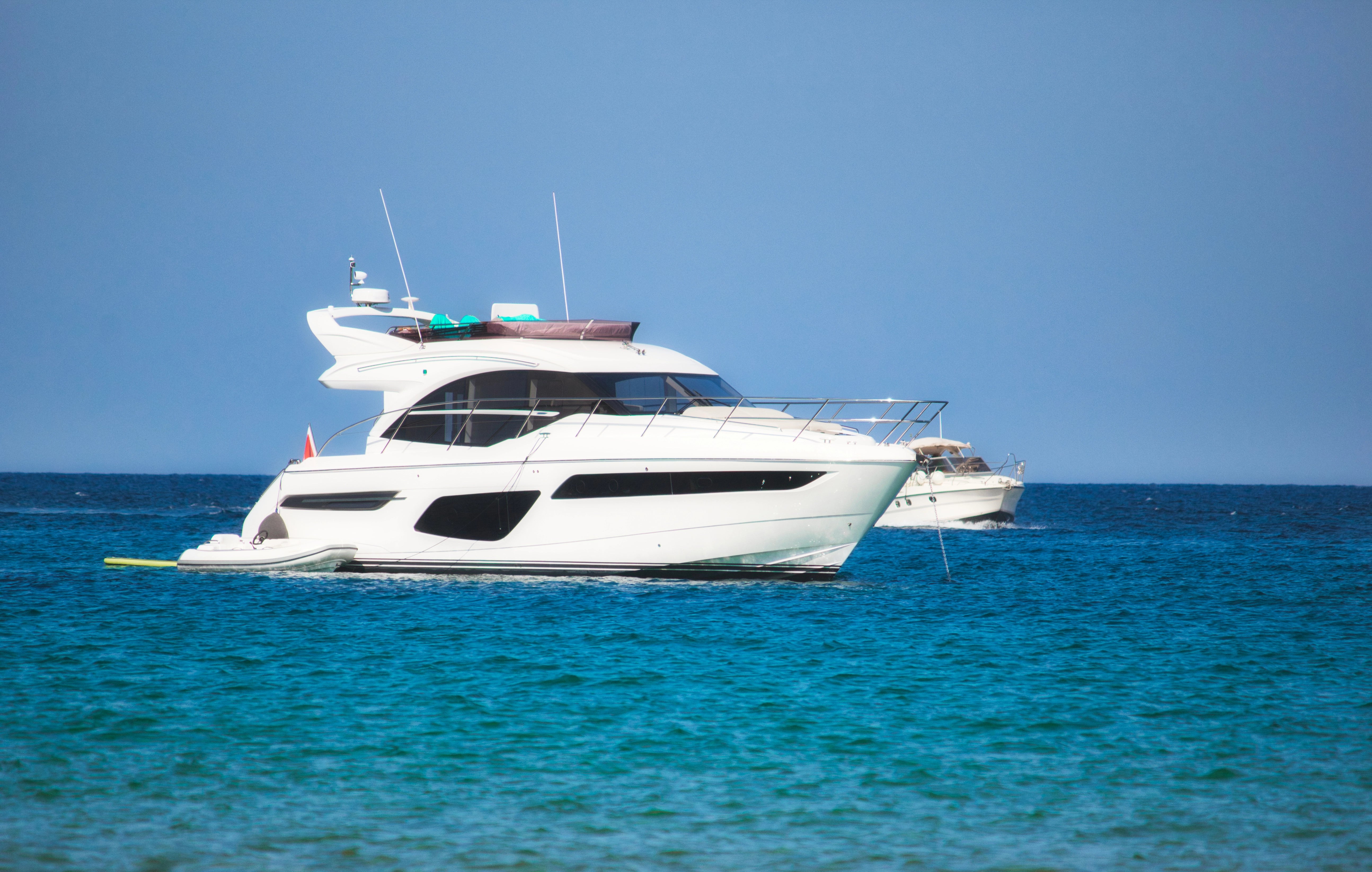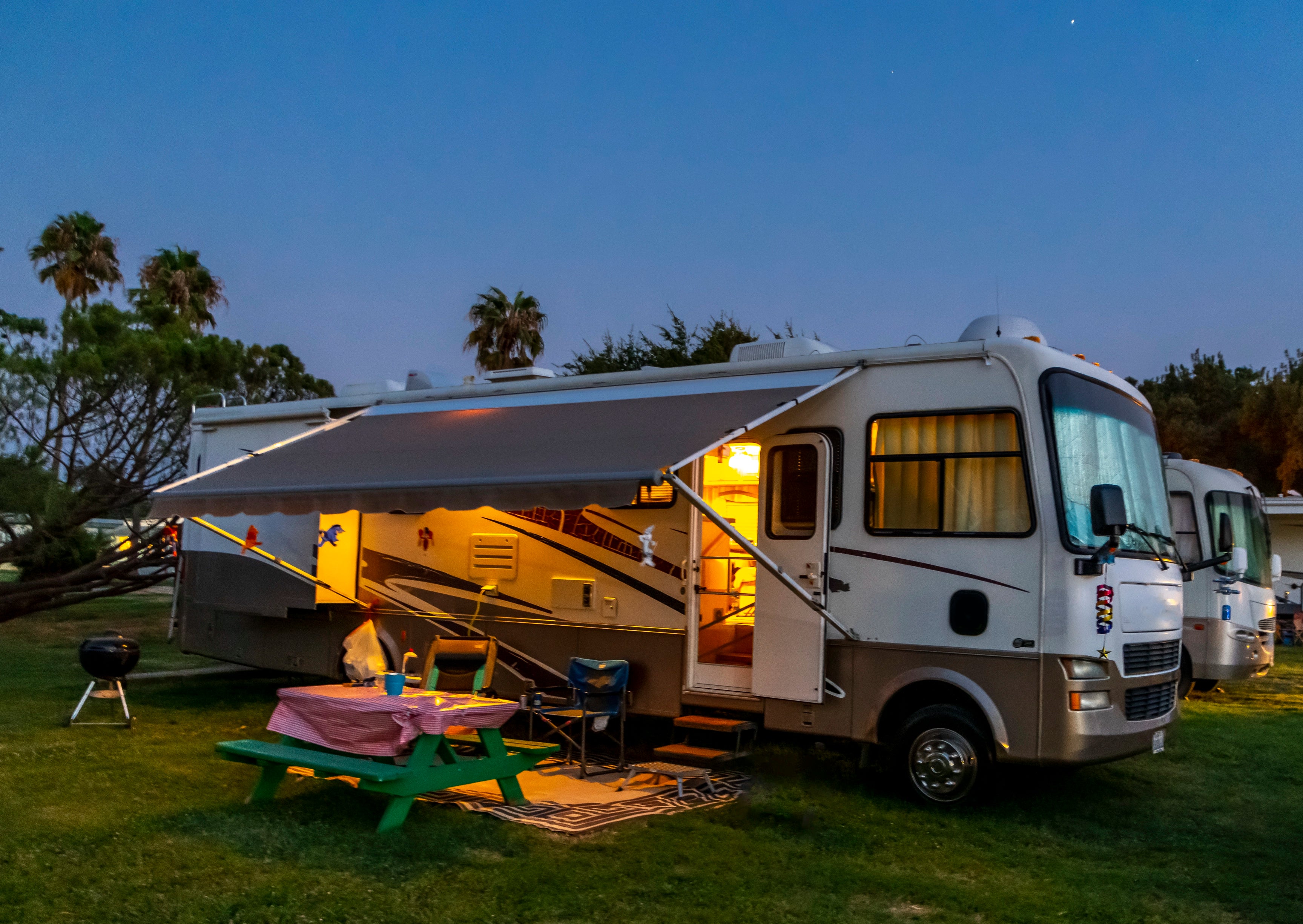Altion Alternator Regulator
$989.00
$889.00
Product Detail
Altion: Faster battery charging for Your Boat or RV
- Intelligent Charging, Maximum Battery Life: The Altion optimizes your power system, ensuring your batteries charge faster and last longer. Now with a powerful on-device Analysis tool, you can also explore historical performance, diagnose past events, and gain deeper insights into your system's operation over time.
-
Altion vs. Altion Max:
- The Altion controls one alternator and one battery, providing seamless power management.
- The Altion Max offers advanced control for up to two alternators and two batteries. It also features a built-in screen to monitor system status, including state of charge, charge stage, voltage and more.
- Complete Installation Kit: The included wiring harness makes installation simple, with everything needed for standard marine/RV setups or van installations. Includes temperature sensors and CAN bus adapters for seamless integration with your boat or RV. It is compatible with both P- and N-Type alternators. The modular connectors allow for easy customization and future modifications.
Key Differentiators
- 20 - 35% Faster Charging: Using excess engine power.
- Universal Compatibility: Works with all major battery chemistries (lead-acid, lithium) and 12-48V systems (8.5-60V operating range).
- Dual Alternator Control: Independently regulates two alternators with a single device (Altion Max).
-
Dual Battery Bank Charging: Charges and manages two independent battery banks, even with different voltages and chemistries (Altion Max).
- Battery Emulation: Instantly modernizes your system by broadcasting voltage, current, and state-of-charge from standard batteries (Lead-Acid, AGM, etc.) to NMEA 2000 and RV-C networks, allowing them to appear as "smart" batteries on your displays.
- App-Free Wi-Fi Connectivity: Easy setup and monitoring via a web-based interface accessible from any smartphone, tablet, or laptop. No app required.
- Automatic Software Updates: Automatically downloads and installs the latest software, keeping it up-to-date. No user intervention required.
- Boost Mode: Harnesses the full power of the alternator to charge the batteries when the Altion senses that the engine has excess power available across the full RPM range.
- Simple Setup: 5-10 minute configuration with preset battery profiles and customizable settings.
- Integrated OLED Display: Provides real-time system status and monitoring information at a glance, including voltage, current, temperature and charging status (Altion Max).
- Advanced On-Device Analysis Tool: Access detailed historical data directly on the regulator. Visualize performance trends, review system event logs (faults, configuration changes), and export data for in-depth analysis – all without needing an internet connection or separate software.
- Comprehensive Wiring Harness Included: Simplifies installation with pre-made, user-configurable connectors, UL 1426/ABYC compliant tinned marine wire, and adapters for CAN Bus (RV-C, NMEA 2000, Victron).
- Compact Size: Easily installs in tight spaces (5.1 x 3.1 x 1.2 inches), 70-85% smaller than competing products.
Includes
- Altion or Altion Max Alternator Regulator
- Wiring branches for alternator, battery, ignition panel, and CAN bus
- Alternator temperature sensor
- Battery temperature sensor
- CAN bus: RV-C RV networking DTM connector
- CAN bus: RV-C to NMEA 2000 marine networking M12 adapter
- CAN bus: RV-C to Victron Cerbo adapter
- Mounting screws (4x)
- Rubber vibration dampening washers (4x)
- Quick start card
- Revatek sticker
Technical Specifications
System Compatibility
- System voltage: 12-48V for both system logic and alternator regulation (8.5-60V operating range)
- Field polarity: A-Type (N) / B-Type (P) compatible (included harness supports both)
Regulation Capabilities
- Voltage regulation: Yes
- Battery current regulation: Yes (requires 25-160mV shunt)
- Alternator output measurement: Yes (using one or both of the shunt inputs)
- Temperature regulation: Yes (alternator and battery)
- Maintains full battery charge: Yes
- RPM-based charging: Customizable alternator loading vs. RPMs to match available engine power. Also known as white-space charging.
- Engine load-based charging: Customizable alternator loading when engine under load.
- Boost Mode: Harnesses the full power of the alternator to charge the batteries when the Altion senses that the engine has excess power available across the full RPM range.
-
Advanced charging algorithm:
- Employs 12 control variables per alternator for precise and optimized charging performance.
- Features 3x PID controllers per alternator for fine-tuned regulation.
- Battery management system compatibility: Communicates directly with RV-C and NMEA 2000 enabled batteries.
-
Charge profiles:
- Preset profiles for all major battery chemistries
- Customizable profiles
- 3 or 4 stage charging
- Temperature compensated charging
Hardware
- Processor: Broadcom quad-core Cortex-A72 64-bit SoC
- Memory: 2GB RAM, 8GB eMMC flash storage
-
Connectivity:
- Wi-Fi 5
- Gigabit Ethernet
- USB-C
- CAN 2.0b and FD with RV-C, NMEA 2000, J1939 and Victron
- Display: 1.5 inch OLED Display (Altion Max)
- Alternator power delivery: High-efficiency synchronous buck converters, 100V MOSFETs
- I/O: 12 ADCs, dual RPM input, dual charge cutoff input, dual ignition input, dash lamp output
- Enclosure and electronics: IP22, corrosion-proof ABS, conformal coated PCB, operating temperature up to 85°C
- Other: LED Indicators, external buttons (Wi-Fi, reboot, factory reset)
Configuration, Control and Monitoring
-
Interface:
- Web-based interface (no app required) for configuration and monitoring accessible via Wi-Fi or Ethernet (smartphone, tablet, laptop)
- System status
- Battery voltage, current, temperature, state of charge (SOC)
- Alternator voltage, current, temperature
- Engine RPM, load
- Charging status
- CAN bus connectivity status
- Faults
-
On-Device Historical Analysis Tool: Beyond real-time monitoring, the Altion features a comprehensive on-device Analysis tool accessible via its web interface. This powerful tool allows you to:
- Visualize Historical Data: View interactive charts of key parameters (voltage, current, temperature, field power, state of charge, etc.) over selected time periods.
- Investigate Trends & Events: Zoom into specific periods, identify trends, and correlate data points.
- Review System Logs: Access detailed logs of past faults and configuration changes.
- Export Data: Download chart data, statistics, and logs in CSV format for offline analysis or record-keeping.
- Local Data Storage: Historical data is stored directly on the device (typically for 14 days), ensuring access even without an internet connection.
- Monitoring via OLED display (Altion Max)
- Web-based interface (no app required) for configuration and monitoring accessible via Wi-Fi or Ethernet (smartphone, tablet, laptop)
- Remote monitoring: Compatible with RV-C, NMEA 2000 and Victron displays, including VRM
- Configuration settings: Direct input or upload configuration files from technician
Harness wire length (in feet)
| Alternator | Ignition panel | CAN bus | Battery | |
| One / two alternator | 5 | 5 | 5 | 20 |
| Van | 26 | 20 | 5 | 5 |
Firmware
- Firmware updates: Automatic over-the-air (OTA)
Warranty
- Warranty period: 2 Years
Altion is the world’s most advanced alternator regulator for boats and recreational vehicles.

Alternator management
- Works with any size of alternator, from small consumer to large industrial, up to 16 amp field.
- Operates from 12 - 48 volts, driving all systems in common use today.
- Uses advanced PID control algorithms to maximize charge speed and fine-tune the alternator output, efficiency and reliability. It adjusts the power based on several inputs, including alternator temperature, battery temperature, voltage, and amperage.
- Boost Mode harnesses the full power of the alternator to charge the batteries when the Altion senses that the engine has excess power available across the full RPM range. This represents the industry's only fully automatic generator replacement technology.
- Protects the alternator from overheating due to the heavy loads of large batteries and lithium charging.
- Works with P-type or N-type alternators.
- Charges only when excess power is available by monitoring engine load and/or RPM.
- Altion Max regulates two alternators independently, ideal for two engine configurations (Patent Pending).
- Connects to optional alternator shunt to display current output.

Battery management
- Works with all battery chemistries, including lead acid (flooded, AGM) and lithium (LiFePo4), optimizing the charging parameters for each type.
- Supports current shunts from 25-160 mv and all amperages, providing precise measurement of battery current for all battery banks.
- Uses advanced PID control algorithms to deliver optimal battery voltage and current, and to maintain full state of charge.
- Connects to CAN bus batteries via RV-C and NMEA 2000. Also features Battery Emulation, allowing standard non-CAN batteries to report their status to the network just like a native smart battery.
- Charge cutoff input, stopping the charging process based on configurable signals, such as a relay, voltage spike and battery temperature.
- Altion Max charges two battery banks independently, allowing mixing of different voltages and chemistries (Patent Pending).

Setup
Installation
- Connects with ease.
- Use our pre-made harness for a quick and simple installation, or customize your wiring with configurable connectors.
- Connects with only five wires in the simplest setups, seven wires is typical. Up to 26 connections in the most elaborate multi-alternator / multi-battery configurations.
- Small footprint fits in tight spaces: 5.1 x 3.1 x 1.2 inches (13 x 8 x 3 cm).
Configuration
- Set up in minutes. Choose from preset configurations for a wide range of batteries or customize your settings.
- Connect wirelessly to any smartphone, tablet or PC (Windows or Mac). No computer, app or cables required.
- Wi-Fi or ethernet-based connectivity for ease of connection, greater reliability, and longer range than traditional USB or Bluetooth.
Automatic updates
- Enable automatic updates to ensure Altion is always up-to-date with the latest features, optimizations and marine/RV standards.
- New features are released frequently.

Monitoring
Real-Time Insights & System Control:
- Comprehensive Dashboard: Access a detailed real-time dashboard from any phone, tablet, or PC (Windows or Mac) via Wi-Fi or Ethernet. Monitor crucial live data including voltages, amperages, temperatures, RPM, state of charge, and current charge stage.
- Victron Integration: Seamlessly integrates with Victron Cerbo GX, Lynx and related devices over both NMEA 2000 and RV-C. The Altion can intake battery data from your Victron system and display its own real-time alternator and battery information directly on Victron displays and Victron's cloud VRM for a centralized system view. Fully supports all alternator charging-related functions including DVCC.
- CAN Bus Connectivity: Robust CAN bus networking support (RV-C, NMEA 2000, VE.Can, and J1939) allows for extensive data sharing and control within your marine or RV ecosystem.
- Intelligent Alerts: The system actively alerts you to abnormal conditions such as high/low temperatures, voltages, or amperages for the alternator(s), battery bank(s), and the regulator itself, helping to protect your valuable components.
NEW - Advanced On-Device Historical Analysis Tool:
Beyond live data, the Altion now features a powerful built-in Analysis tool, providing deep insights into your system's performance over time. Accessed directly on the device via its web interface, this tool empowers you to:
- Visualize Historical Performance: View interactive charts of key parameters (voltage, current, temperature, field power, state of charge, etc.) for selected devices over customizable time periods.
- Identify Trends & Diagnose Events: Easily zoom into specific periods on the charts to identify performance trends, correlate data, and understand the context of past system events.
- Review System Logs: Access detailed, filterable logs of historical faults (with descriptions and values) and any configuration changes made to the regulator, complete with timestamps.
- Export Data for Further Analysis: Download chart data, summary statistics (min/max/avg), fault logs, and configuration change details in CSV format for offline record-keeping or advanced troubleshooting.
- Local Data, Always Accessible: Historical data is stored directly on the Altion regulator (typically for 14 days), ensuring you can access these crucial insights even without an internet connection. (Learn more in our Guide).
NEW - Revatek Connect Cloud Platform (Beta):
Take your Altion experience to the next level with our revolutionary cloud platform. Revatek Connect provides professional-grade remote monitoring and management capabilities that complement your device's powerful local features:
Remote Device Management:
- Monitor your Altion from anywhere in the world via secure cloud connection
- Real-time dashboard accessible from any device with internet access
- Automatic cloud backup of device configurations and critical data
- Extended historical data retention beyond the 7-day local storage
Multi-User Access & Collaboration:
- Share device access with technicians, installers, or team members
- Role-based permissions (Admin, Technician, User) for secure access control
- Self-service access request system with approval workflows
- Perfect for commercial installations, boat yards, and RV service centers
Enhanced Analytics & Reporting:
- Cloud-based data analysis with extended historical views
- Advanced fault tracking and trend analysis across multiple devices
- Professional reporting tools with CSV export capabilities
- Device health monitoring with intelligent alert notifications
Enterprise Features:
- Google Sign-In integration for business workflows
- Professional account management and user controls
- Scalable infrastructure supporting single devices to large fleets
Getting Started: Revatek Connect works seamlessly with your existing Altion installation. Simply enable cloud sync in your device configuration and create your free account at connect.revatek.com. No additional hardware required - if your Altion has internet connectivity, you're ready for the cloud.
Patent Pending
Currently in Beta - Experience the future of alternator regulation management.

Support, warranty and repair
- Setup support
- 2 year warranty
- Corrosion-proof enclosure
- Conformal coated PCB
- Low cost repair and replacement
Altion FAQ
Where can I have my Altion installed?
Where can I have my Altion installed?
Revatek is growing quickly and building a dealer network. We suggest you or your preferred technician buy direct from our website. Our team would love to connect with them if they would like to speak with us about technical details or building a wholesale relationship. The Altion is typically easier to set up than other alternator regulators.
Is it possible to set up the Altion on my own?
Is it possible to set up the Altion on my own?
Replacing existing alternator regulators is straightforward for those with electrical experience. For new and/or complex installations, we recommend enlisting the help of a skilled technician for the installation process. For marine applications, we recommend seeking out an ABYC-certified technician, as they typically have extensive training in system installation.
How do I configure the Altion?
How do I configure the Altion?
Out of the box, the Altion creates a Wi-Fi network on startup. Connect to that network with your phone, tablet or computer and input your configuration. Many techs can finish in less than five minutes. It's that easy.
What's the difference between the Altion and Altion Max?
What's the difference between the Altion and Altion Max?
The Max has an OLED screen on the enclosure to convey charging information. It is also designed to regulate two alternators and supports one or two battery banks, which is ideal for boats with two engines. This is simpler and more cost effective than alternative solutions.
What system voltages does the Altion support?
What system voltages does the Altion support?
The Altion operates anywhere between 12 – 60 volts. It easily accommodates 12, 24 and 48 volt systems, plus anything in between.
What types of batteries are compatible with Altion?
What types of batteries are compatible with Altion?
The Altion is compatible with virtually all marine and automotive batteries with nominal voltages from 12 – 48 volts. This includes both lead acid (e.g., flooded, AGM) and lithium (e.g., LiFePO4). For lithium in particular it is critical to configure the Altion to charge within the specifications of the battery manufacturer to avoid self-disconnects by the internal battery management system. Battery disconnect protection, such as avalanche diodes within the alternator and/or an external alternator protection device, is highly recommended. We do not certify specific batteries and are not responsible for any issues related to battery disconnects.
How do I wire the Altion for N vs P type alternators?
How do I wire the Altion for N vs P type alternators?
The difference between the two types is the direction of the current flow through the field coil in the alternator. The Altion wiring harness is shipped from the factory for P type, and can be easily reconfigured by the installer for N type. Most externally regulated alternators in the US and in the global marine market are P type. N type is prevalent in automotive and European setups. It’s important to configure properly for your type, as improper wiring will cause damage.
Can the Altion regulator be used with my engine manufacturer’s alternator?
Can the Altion regulator be used with my engine manufacturer’s alternator?
Yes, provided the alternator is modified to enable external regulation. If you pursue this modification, we recommend using a skilled alternator technician. With that said, engine factory alternators are typically underpowered for house loads, and we often recommend using a high-quality aftermarket alternator, either to replace or supplement the factory alternator. Ensure that the original alternator is not connected to the engine computer if replacing the factory alternator.
Is a secondary alternator necessary or can I use only the primary one?
Is a secondary alternator necessary or can I use only the primary one?
The necessity of a secondary alternator largely depends on its application. For most automotive uses, such as in RVs and trucks, the alternator is an integral part of the engine’s computer control. Typically, the primary alternator communicates with the engine computer, and such systems don’t allow external regulators like the Altion. In these instances, it’s necessary to add the Altion to a secondary alternator dedicated to managing house battery loads. On the marine side, this same holds true for some newer engines, though often primary alternators are not connected to the engine computer, making them suitable for the Altion.
What size of alternator do I need?
What size of alternator do I need?
The alternator’s capacity depends on the size and type of the battery bank being charged. Ideally alternators should be sized to charge as fast as the batteries can handle within their factory recommended charge parameters. Check your battery specifications for precise recommendations. For typical lead-acid batteries, the alternator should output 25% of battery bank amp hour capacity. For typical lithium batteries, the alternator should output 50% of battery bank amp hour capacity. Add another 10% to these figures to account for the notion that most alternators do not achieve their rated output in real-world conditions. The Altion precisely controls the alternator’s output and temperature, ensuring its longevity while charging batteries as quickly as possible.
Why is current measurement important?
Why is current measurement important?
The Altion measures current to precisely determine a battery’s state of charge. This is crucial for newer technologies like LiFePO4 where voltage alone isn’t a reliable indicator. Unlike most other systems, Altion adjusts alternator output based on current measurement to keep the battery at 100% charge and prevent overcharging. This method allows the Altion to charge faster, more accurately and with greater safety. It also extends the lives of the batteries and alternators by keeping them precisely within their design parameters.
Will my shunt work with the Altion?
Will my shunt work with the Altion?
The Altion is compatible with most analog shunts from 25-160 mv. However, some smart shunts may not be compatible. If your shunt has accessible small machine screws on the side of its resistive blocks, it should work with the Altion. If there are no accessible small screws, it will not work. Do not connect the shunt wires to the posts that the main cables connect to as that could provide errant readings and damage the Altion. The amp rating of your shunt should exceed the maximum load you expect on your battery bank.
Where do I install the shunt?
Where do I install the shunt?
The shunt should be the only thing connected to the battery bank negative terminal. Everything other negative cable should be connected through the opposite end of the shunt. This approach allows the shunt to measure all battery current.
Can I extend the length of the harness wires?
Can I extend the length of the harness wires?
Yes. We recommend using 16 AWG wire if needed. Extensions of 15 feet or less are typically acceptable. If extending the shunt current sense wires, twist them together to retain maximum accuracy.
Do I need an alternator protection device?
Do I need an alternator protection device?
Some batteries, e.g., lithium, can self-disconnect from their charging source for safety and to prevent overcharging. For any such battery, the alternator and other electronics must be protected from a battery disconnect while the alternator is charging. While the Altion responds to such events by stopping charging within milliseconds of detecting a disconnect, alternators will continue charging for a short period after shut off due to electromagnetic induction. We strongly suggest using an alternator fitted with avalanche diodes. These diodes are specifically designed to endure and neutralize voltage spikes caused by sudden disconnects. Additional protective devices, designed to enhance the alternator’s capacity to handle voltage spikes, while not strictly necessary when the alternator has avalanche diodes, provide additional protection.
Can I run a 48 volt alternator with a 12 volt field?
Can I run a 48 volt alternator with a 12 volt field?
Yes, simply configure the field voltage to 12 volts in setup.
Can I run more than 2 alternators with the Altion?
Can I run more than 2 alternators with the Altion?
Yes. The Altion Max can independently regulate one or two alternator groups on one or two battery banks. An alternator group refers to matched alternators attached to the same engine, as long as maximum field current across an alternator group is less than 16 amps.
What if I see a flashing light on the Altion?
What if I see a flashing light on the Altion?
A flashing light indicates a fault condition. Ensure that the Altion's Wi-Fi is on and connect to it with your phone, tablet or PC. The dashboard will display the fault.





































